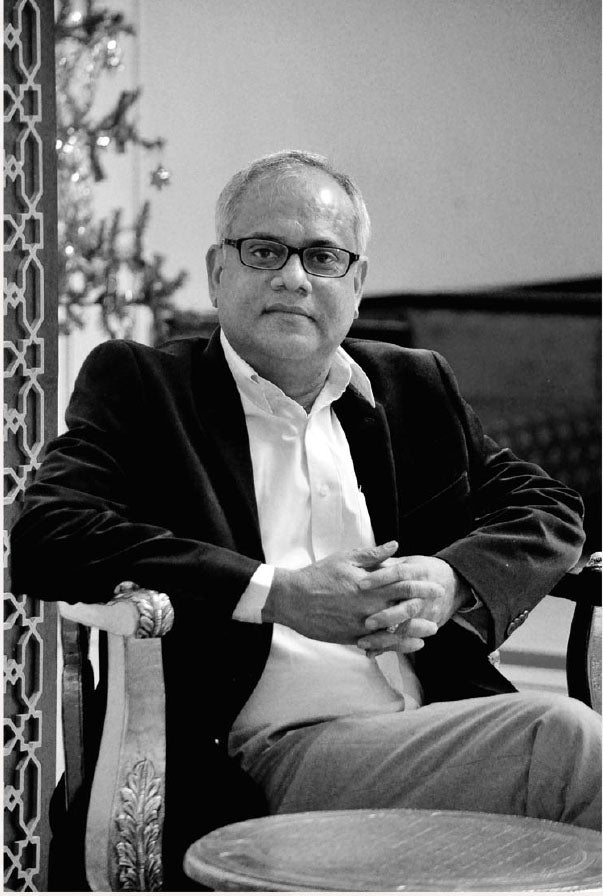Theodore Transitions UPP Headship to Vidyarthi
When he stepped in as the new department head for the Urban Planning and Policy Department within CUPPA at the start of 2020, Professor Nik Theodore had grand plans. More than anything else, Theodore hoped that he could help ensure that other faculty had more time to devote to their own research, carving out enough space to dig into the areas of study that make the department one of the nation’s leading urban planning programs.
Then, March 2020 hit.
Like all well-laid plans, the onset of the COVID-19 pandemic more than three years ago transformed Theodore’s expectations for his role. Rather quickly, any idea of creating more time for faculty research went out the window, as the department, CUPPA, and UIC as a whole shifted their entire learning apparatus online, all while contending with massive upheavals within each individual household and the wider social unrest of summer 2020. In that climate, Theodore, who was recently recognized as a distinguished faculty by UIC’s chancellor, says he’s immensely grateful for the effort made by his colleagues to respond to such severe circumstances, crediting them for responding to such difficult circumstances with attentiveness and deep engagement.
“All our plans went completely out the window, and we had a faculty and staff that had to move to remote work and to think about how to continue to deliver our excellent programs in an entirely new context for us,” Theodore says. “Because time has elapsed, we tend to forget how much effort it took to do that, but the effort put forward to maintain our programs in that context, all while experiencing a lot of challenges themselves in terms of caring responsibilities, showed A-plus effort.”
As the new semester gets underway, Theodore hands off the reigns of the department to his colleague and Urban Planning and Policy Professor Sanjeev Vidyarthi. In some ways, Vidyarthi presents his plans for leading the department more modestly than what Theodore originally envisioned, suggesting that his main goal is to maintain the trajectory that Theodore has helped foster over the past three years, especially the further integration of a host of new faculty and staff hired in recent years. Within the context of a close-knit faculty that’s worked so intimately through some of the most challenging years that anyone has ever faced, the act of continuing in these efforts is significant, and Vidyarthi hopes that the work will bolster the department’s position as one of the nation’s leading urban planning programs, especially as the city hosts this year’s Association of Collegiate Schools of Planning (ACSP) in October.
“Our faculty are collectively judged on our standing and legitimacy by how our peers and the wider world thinks of our work,” Vidyarthi says. “We think we belong in the top five or six schools in the planning world right now, and we just need a little more visibility to make that happen.”
Vidyarthi is excited to undertake several key short-term projects to move the department forward. This year marks the 50th anniversary of the founding of the Urban Planning and Policy program, a marker that Vidyarthi hopes to commemorate throughout the year. After these changes and celebrations occur, Vidyarthi also hopes that the department will spend time reviewing its curriculum, with a goal to refresh some of its content in the next year or two.
Another of Vidyarthi’s major tasks of the past several years that’s gained fresh life is the launch of a Master of City Design (MCD) degree, a one-year program that allows its participants to gain the vital skills to launch a career at the intersections of architecture and planning. While the first cohort for the program launched in the 2019-2020 school year, the onset of the pandemic temporarily suspended the program for one year, as it relied heavily on in-person studio time that became impossible in the opening moments of the pandemic. As it enrolls its fourth cohort, another key project is solidified, something that can continue to inform the department’s multi-year goals.
More than anything else, Theodore says that Vidyarthi’s perpetual sense of energy is just what the department needs in the transition. As the department continues to work together in a collective fashion on its many goals, he says that Vidyarthi is the perfect catalyst to continue this work, showing an indefatigable energy that will serve his colleagues well.
Last Paragraph

“I think everyone in the department is tired from this pandemic period, but if there’s one person that doesn’t seem to be tired at all, it’s Sanjeev,” Theodore says. “I’m humbled at the enthusiasm and energy that he has going into this position. I mean, he’s already traveling at a very high rate of speed, and he hasn’t even started the job yet.”